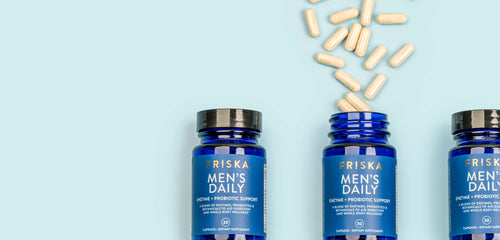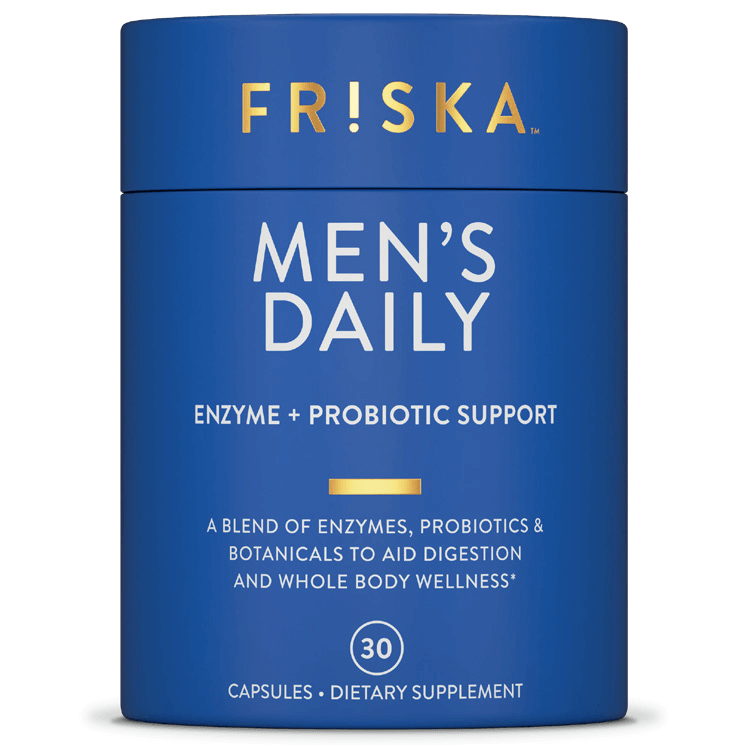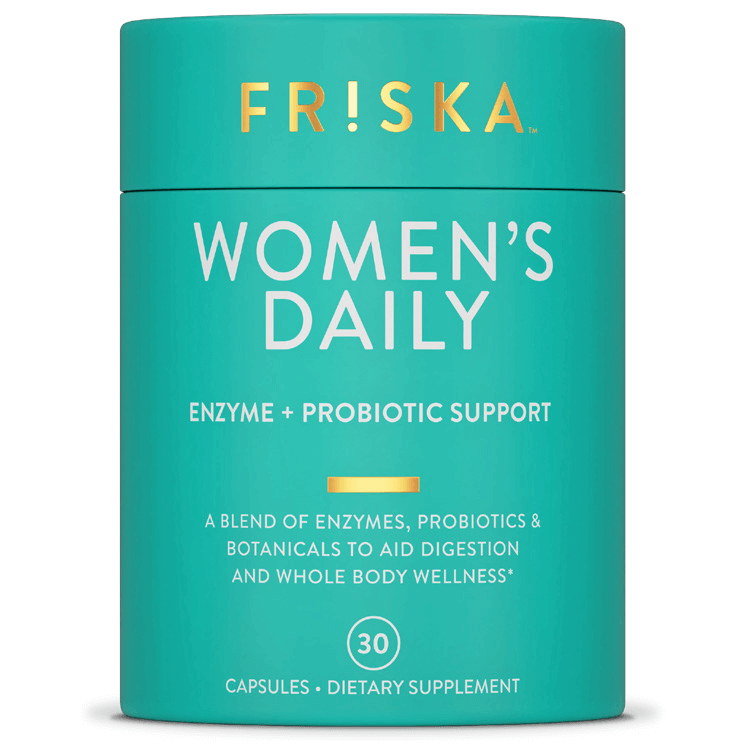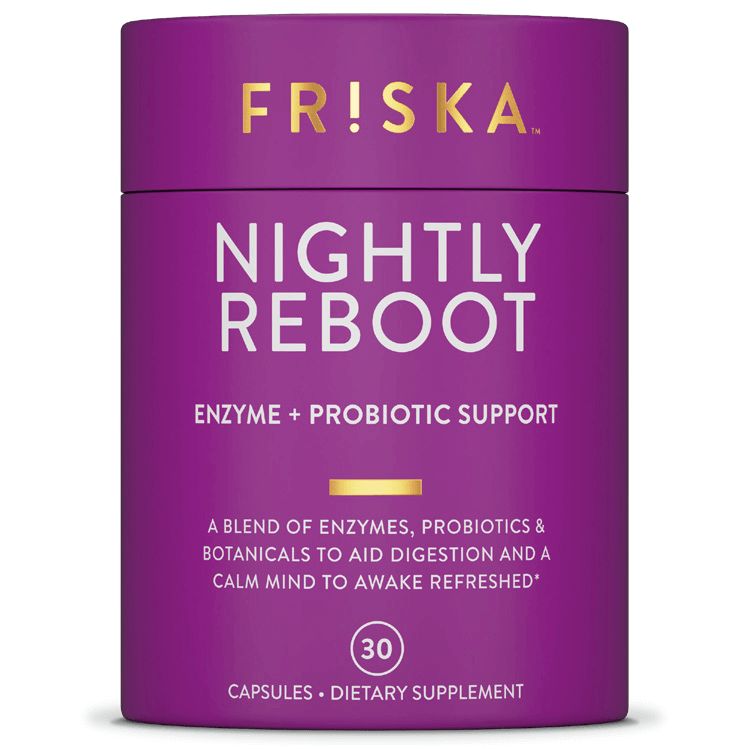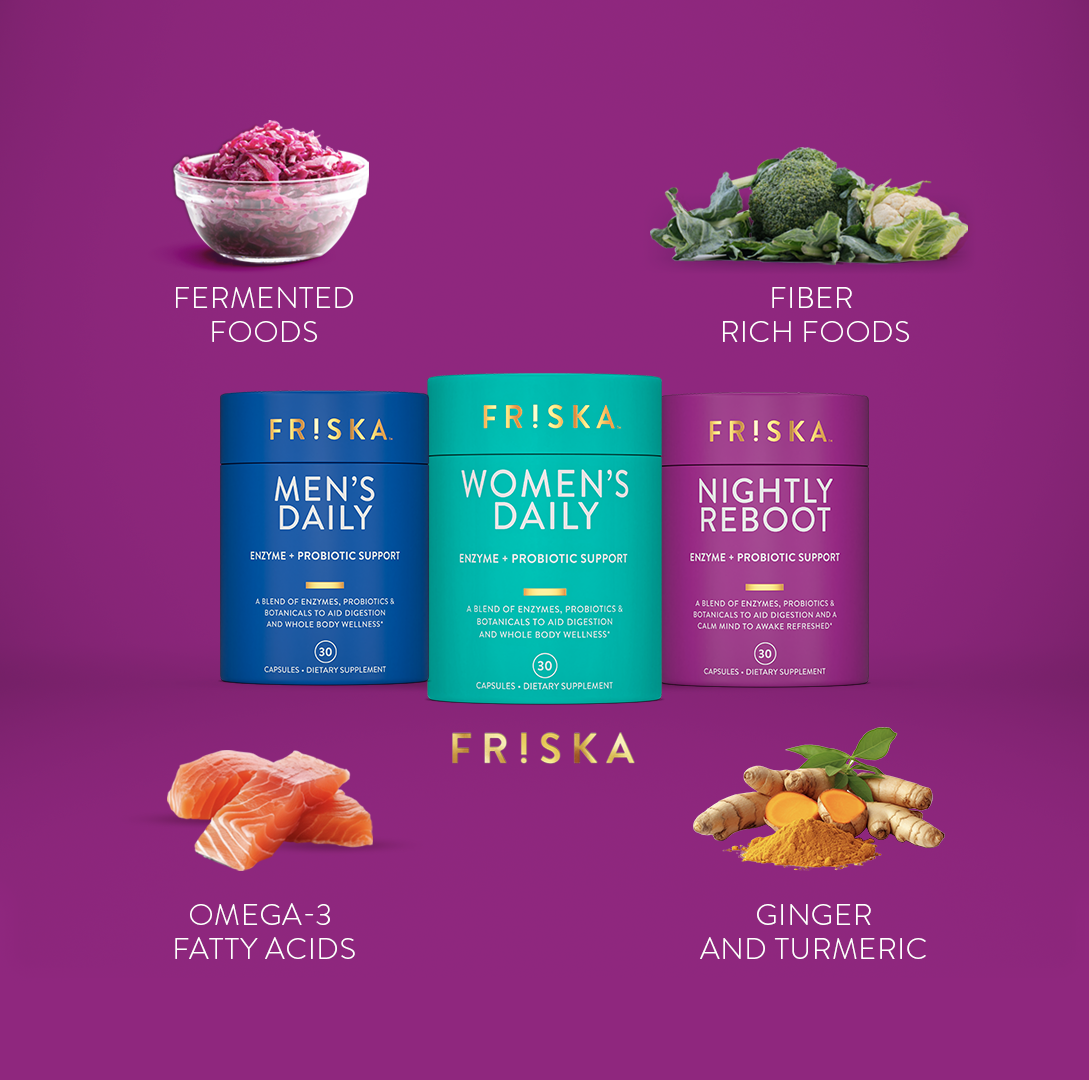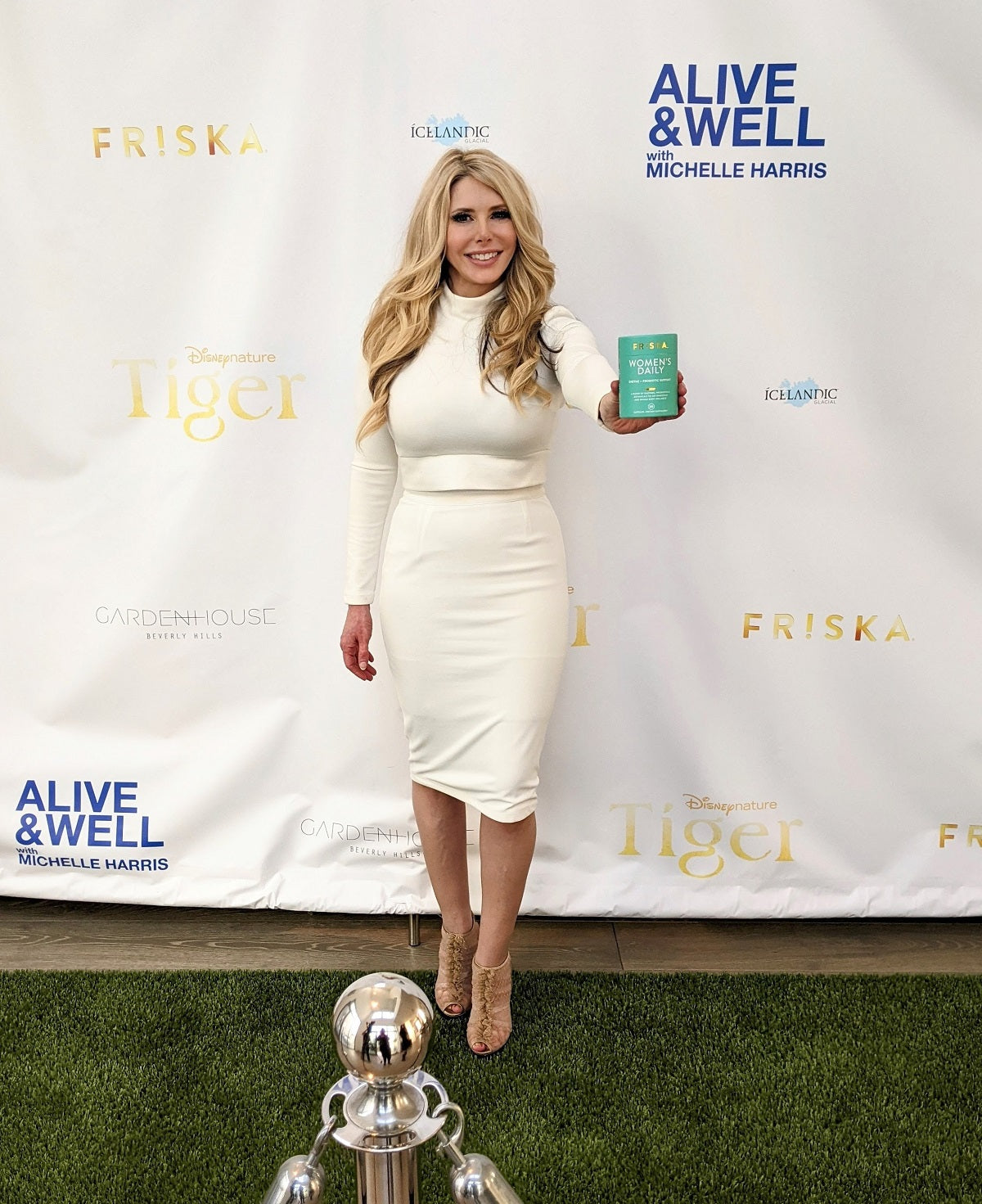WHAT I’VE DONE IN MY DIET, SUPPLEMENTS I’VE TRIED,
AND WHAT’S WORKING NOW
Welcome back to My Gut Health Journey! If you haven’t read my Part One yet, check it out here. This blog covers symptoms I’ve had, doctors I’ve seen, diagnosis, and more. I’ve struggled for YEARS with gut issues, and while I definitely don’t have it all figured out, I wanted to share some of what has helped me thus far.

NOW FOR PART TWO!
For the second part of this series, I’m sharing dietary changes I’ve made, different things I’ve tried over the years, and what works for me today.
First tries at dietary adjustments
My first gut issues started way back when I was in middle school. So followed years of bloating, pain, discomfort, irregularity, nausea, constipation, and just about every digestive problem you could dream of.
I first experimented with eating gluten free back in high school. Let me tell you, 2008 was NOT the year for good gluten free products. A loaf of gluten free bread weighed about 5 pounds, gluten free pasta turned to absolute mush, it was Rough Times at Ridgemont High.
But honestly, my efforts didn’t last long. Being 16, I didn’t want to miss out on pizza nights with friends and racing off campus for lunch to get sandos Board and Brew (if you know, you know). I did my best to just ignore my symptoms and hoped they would simply resolve themselves.
DIAGNOSIS
Unfortunately, my symptoms did not resolve themselves. After an upper endoscopy and colonoscopy, my GI doctors diagnosed me with Irritable Bowel Syndrome.
IBS seems to be a rather vague diagnosis that encompasses a wide range of symptoms. It’s estimated that 10-15% of the population have IBS, with 2/3 of those being women. There are a variety of diets that help with IBS and it often takes a bit of trial and error to see what works for your body.
When I was 17, I was diagnosed with the autoimmune disease Ankylosing Spondylitis (AS). AS causes a number of digestive issues in addition to chronic inflammation in the joints. I personally feel my AS is the root of most of my gut issues. I’ve worked to manage my AS symptoms first, which has greatly improved my IBS/gut issues.
FINALLY COMMITTED TO DIETARY CHANGES
Following years of starts and stops, I finally started making dietary changes my sophomore year of college. After a scary health issue caused me to need to take a semester off of school (I’ll be sharing about this in Part 3 of my series), I realized that changing my diet was pivotal to getting out of the debilitating pain and inflammation I was experiencing.

FIRST CHANGE: 100% GLUTEN FREE
Multiple doctors (rheumatologist, naturopath, GI specialist) suggested trying a gluten free diet because of my autoimmune disease and chronic inflammation. Starting in 2012, I finally committed to trying it out. The first few weeks were DEFINITELY challenging, and frustrating to not feel an immediate impact. I didn’t start to feel a difference until about 3-4 weeks of eating 100% gluten free. But man, it has helped me so much.
Since starting to eat gluten free in 2012, I’ve gone through phases where I’d occasionally splurge on some gluten if it just looked too dang tasty. These days, a bite of crusty glutinous bread is just not worth the dietary struggles, inflammation, and headaches that come along with gluten for my body.
Main improvements:
- Fewer headaches
- Less joint inflammation
- Reduced stomach pain and bloating
- Improved digestion and regularity
TOP TIPS FOR SOMEONE GOING GLUTEN FREE FOR THE FIRST TIME FOR HEALTH REASONS
- Don’t get discouraged if you don’t feel an improvement in your digestion after a few days. Expect it to take at least a month to notice a difference.
- Stock up on alternatives. Some of my favorite gluten free products (that aren’t filled with dozens of crazy additives or processed ingredients) are:
-AWG Paleo Bread: tastes like a dense sourdough, made without any gums or preservatives and insanely tasty toasted with some pasture raised butter. My code BEACHSIDEKITCHEN10 gets you 10% off their site
-Trader Joe’s Brown rice pasta: made with just one ingredient, this pasta is my ultimate comfort food that seems to always work for my gut. I love the penne!
-Siete grain free tortillas: the texture and taste of these is incredible, and you can still enjoy all your favorite Mexican dishes! My favorite are the almond flour tortillas
-Purely Elizabeth Granola: this has been a staple in my breakfast routine since waaay back in 2014. Favorite flavors: Original, Pumpkin, and Blueberry Hemp.
- Try new recipes! There are hundreds of incredible gluten free recipes out there. Rather than feeling bummed you can’t make the same exact dish you did before, branch out and explore some new favorites.
- Look up the menu at restaurants before you go out. I know this sounds lame, but knowing the restaurant I’m going to has options removed a lot of stress for me (especially since I get HANGRY). Plus, it’s rare that restaurants won’t have at least one or two dishes that are gluten-free friendly

FOODS I AVOID OR EAT ONLY IN MODERATION
The following foods are rough on my gut, and I try to eat only occasionally
Fried Food
Hot damn do I love some french fries, but man they screw up my digestion like no other. My stomach gets bubbly and painful and it takes 2-3 days to get any sort of relief.
Highly Processed Foods
Packaged foods with dozens of unnatural ingredients (many of which I can’t even pronounce) often end up causing more inflammation for my body. The majority of my diet consists of whole foods, and I try to snack on products made with REAL, simple ingredients
Refined Sugar
Headaches, stomach aches, and inflammation ensues with highly refined sugars and corn syrups. Instead, I love to bake my own treats with natural sweeteners 🙂 and have dozens of recipes on this site for you all!

Artificial Sweeteners – AVOID!
Artificial sugars like xylitol, aspartame, sucralose, along with “natural” no calorie sweeteners like allulose completely screw up my gut biome. I get terrible stomach pains, horrible bloating and gas, constipation and diarrhea. I avoid these as much as I possibly can.
I’ve found that small amounts of monk fruit or stevia are less severe on my gut, but I do eat these in moderation. I try to stick to natural sweeteners maple syrup, coconut sugar, or dates instead.
Alcohol
I have 1-2 glasses of GOOD red wine maybe twice a week. Red wine works for my gut in moderation, and always make sure that I’ve got a good mix of protein, carbs, and healthy fat in my gut when consuming alcohol. My favorite wine is Yorba Wines Barbera.
I’ve also discovered NOVA Hard Kombucha and LOVE it!
Hard liquors are much tougher for my stomach, especially dark liquors like whiskey or rum. If I do drink liquor (which is VERY rare), it’s a high quality blanco tequila like El Espolon or Casamigos.
Anything more than a few drinks a week does cause digestive issues and gut pain, so I consume in moderation!

FOODS I’VE ELIMINATED AND NOW REINTRODUCED
Dairy
I eliminated all dairy for about 2 months. After slowly reintroducing dairy products, I found that eaten in moderation, my body can handle dairy just fine. While I won’t be chugging down a gallon of milk anytime soon, my gut actually thrives on small amounts of organic, cultured dairy.
Dairy products that work for me in moderation:
-Cultured yogurts – kefir, greek yogurt, Skyr
-Cheese – especially sheep and goat cheese
-High quality ice cream
Grains
I spent about 1 month fully grain free. I actually found that my body does better when consuming gluten free grains that are minimally processed. Some of my favorite gtluten free grains are:
-Brown rice
-Quinoa
-Gluten free pasta (brown rice or chickpea)
-Oatmeal
PRODUCTS THAT SUPPORT MY GUT HEALTH
PROBIOTICS AND DIGESTIVE ENZYMES
Adding supplements like probiotics and digestive enzymes to a balanced diet has been HUGE for improving my gut health. Living with an autoimmune disease (and taking a pretty intense medication for it), along with a lifetime of gut issues, I’ve found that a little extra help in the gut department never hurts.
I’ve been loving the FRISKA supplements. They have a healthy dose of probiotics, digestive enzymes, and targeted botanicals for a host of different dietary needs. My current favorites and the Immunity and Women’s Health blends.
My current favorites and the Immunity and Women’s Health blends. Check it out HERE.

I love this one from FRISKA.
Probiotics
Probiotics are made up of good bacteria that helps keep your body healthy and working well. Research has shown probiotics support healthy immune functions, promote a healthy heart, support normal bowel movements, and help protect against occasional constipation or diarrhea. (source: https://www.getfriska.com/pages/inside-the-bottle)
Digestive Enzymes
Digestive enzymes help break down large insoluble food molecules into smaller, soluble nutrients which can pass through the intestinal wall and into the bloodstream. Enzymes help break carbohydrates down into sugars, proteins into amino acids and fats into fatty acids. Our bodies utilize these nutrients to build muscle, bone, hair and skin and produce antibodies, hormones, and other essential substances.

FINAL TIPS
Well friends, that’s my journey adjusting my diet for my gut. Gut health is an incredibly personal journey and what works for my body may not be the answer for you! Just know I’m always here to help in any way I can. DM me on Instagram with any questions 🙂
Last tips for you:
-Eat slower and chew your food: this is the MAIN cause of bloating for me. Chewing helps mechanically bread down your food and releases more digestive enzymes from saliva. Skipping this steps pressure on the rest of the digestive tract, meaning food may sit longer in the gut fermenting and producing gas
-Drink lots of water: Water helps break down food so that your body can absorb the nutrients. Hydration helps prevent constipation as well.
-Keep a food journal: I saw this with a caveat that anyone with a history of disordered eating should consult with a medical professional before doing so. My doctors suggested trying this so I could track which foods triggered symptoms and how long they took to arise



